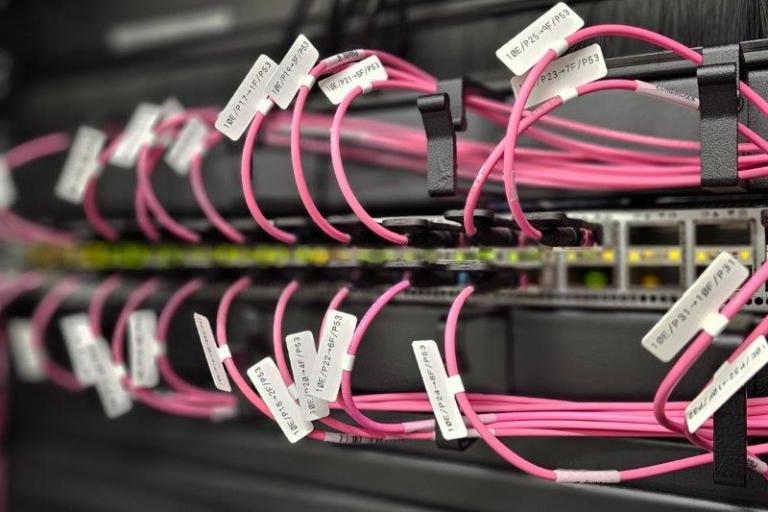Your BNIX interconnection
As a BNIX (Belgian National Internet eXchange) Participant, you must have at least one active peering relationship. Participants that wish to set up peering between themselves subscribe to a bilateral peering contract, with no BNIX involvement. In principle, the data traffic goes directly through these connections, but it can also transit via the central route server.
BNIX offers you the following connection speeds:
- 10 Gigabit Ethernet (LR or ER)
- 100 Gigabit Ethernet (LR4)
5 immediate benefits from joining BNIX
Increased reliability
Your organisation can exchange IP traffic with several Internet service providers. If there is a technical problem with one of them, you have alternatives. You can also negotiate conditions relating to a connection that will only serve as back-up.
Reduce transit costs
You improve the efficiency of your network by choosing a direct data exchange with BNIX Participants. You can agree that the direct exchange of data with other BNIX participants is free, and reduce your costs this way. Transit traffic to other networks is allowed.
Faster traffic
A direct connection reduces the number of intermediary stages (“hops”) on the route between two connected BNIX participants.
High transfer capacity
The BNIX provides high capacity LAN connections, which enables you to send large data volumes easily to a large number of end users.
Inexpensive connections
As BNIX services are based on LAN technology, the price of the bandwidth is low.
Customised Ethernet, VLAN and IP
BNIX employees adapt your BNIX connection to your needs and give you advice to optimise your interconnection concerning:
- the group of Ethernet connections (Etherchannel/PortChannel);
- IPv4 and IPv6 support.
BNIX services do not include VLAN installation for the private interconnection between Participants.
IPv4 and IPV6 Protocols
The BNIX works with the IPv4 Internet protocol and the IPv6 protocol. You can configure IPv6 in two ways:
- by using a specific IPv6 port;
- by configuring IPv4 and IPv6 on the same port (dual stacking) in the VLAN for unicast.
Assistance
- Service Desk and Network Operation Centre (NOC) 24/7.
- Hardware support available 24/7 for BNIX switches
- Technical advice
